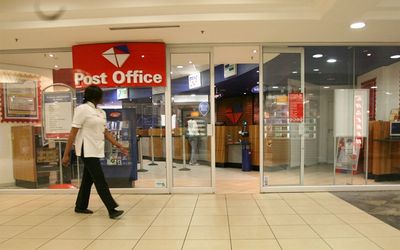ECONOMY: Saveact filling the void left by Post Office in assisting stokvels
by Johann Barnard,
2014-11-20 07:01:52.0
GROWING calls for a state-owned bank partly reflect frustration with the lack of easily accessible financial services for the poor.
Hopes that the Postbank, a subsidiary of the Post Office, will play a role have been dwindling because of management problems there and the damaging strike of the past few months. Instead, many millions of poor South Africans face unscrupulous lenders and other operators who swallow up the little money they earn.
Filling the void are savings groups or stokvels. These informal structures are used by millions of people in poor communities to take care of their basic, and emergency, financial needs.
According to a survey by African Response this year, more than 8.5-million people belong to stokvels, accounting for savings estimated at R25bn. They act in something of a legal grey area, with previous attempts to formalise stokvels into credit co-operatives having had limited success. Despite their ubiquity, there is a clear need to ensure they can access proper skills and resources given their role as mobilisers of substantial savings, particularly in rural communities.
Anton Krone, founder of credit and savings group SaveAct, says these informal structures serve an undeniable need. His organisation helps communities in rural and peri-urban areas in KwaZulu-Natal, Eastern Cape, Free State and the Northern Cape set up such savings structures. In addition to promoting monthly savings, these groups also lend to members to take care of needed expenses, as well as small enterprise development.
“We train them how to manage such a scheme in a transparent manner. These are highly functional groups that produce returns on their saving of 30% to 40% annually.
“There is no formal bank of any kind that can compete with that return on savings. Globally, savings products usually yield low returns of about 3% to 4%, which is below inflation. That is not a very promising place to put your money if you want to build up capital, especially if you add in the cost of bank charges.” SaveAct has more than 35,000 members, 90% of whom are women who jointly mobilise an estimated R100m a year.
Krone has his doubts of Postbank’s ability to act as a substitute for rural savings groups. “It might complement them as a formal savings option, but I can’t see that it will attract significant money out of savings groups because the returns are just not appealing, and it’s costly to transact,” he says.
He adds that the work SaveAct is doing is not entirely unknown to the National Planning Commission, which co-hosted the Carnegie III: Strategies to Overcome Poverty and Inequality conference in Cape Town in 2012 at which SaveAct made a presentation.
Postbank has applied for a banking licence, although progress is uncertain, with the Department of Posts and Telecommunications declining to provide any answers to questions on this process.

Picture: SOWETAN
GROWING calls for a state-owned bank partly reflect frustration with the lack of easily accessible financial services for the poor.
Hopes that the Postbank, a subsidiary of the Post Office, will play a role have been dwindling because of management problems there and the damaging strike of the past few months. Instead, many millions of poor South Africans face unscrupulous lenders and other operators who swallow up the little money they earn.
Filling the void are savings groups or stokvels. These informal structures are used by millions of people in poor communities to take care of their basic, and emergency, financial needs.
According to a survey by African Response this year, more than 8.5-million people belong to stokvels, accounting for savings estimated at R25bn. They act in something of a legal grey area, with previous attempts to formalise stokvels into credit co-operatives having had limited success. Despite their ubiquity, there is a clear need to ensure they can access proper skills and resources given their role as mobilisers of substantial savings, particularly in rural communities.
Anton Krone, founder of credit and savings group SaveAct, says these informal structures serve an undeniable need. His organisation helps communities in rural and peri-urban areas in KwaZulu-Natal, Eastern Cape, Free State and the Northern Cape set up such savings structures. In addition to promoting monthly savings, these groups also lend to members to take care of needed expenses, as well as small enterprise development.
“We train them how to manage such a scheme in a transparent manner. These are highly functional groups that produce returns on their saving of 30% to 40% annually.
“There is no formal bank of any kind that can compete with that return on savings. Globally, savings products usually yield low returns of about 3% to 4%, which is below inflation. That is not a very promising place to put your money if you want to build up capital, especially if you add in the cost of bank charges.” SaveAct has more than 35,000 members, 90% of whom are women who jointly mobilise an estimated R100m a year.
Krone has his doubts of Postbank’s ability to act as a substitute for rural savings groups. “It might complement them as a formal savings option, but I can’t see that it will attract significant money out of savings groups because the returns are just not appealing, and it’s costly to transact,” he says.
He adds that the work SaveAct is doing is not entirely unknown to the National Planning Commission, which co-hosted the Carnegie III: Strategies to Overcome Poverty and Inequality conference in Cape Town in 2012 at which SaveAct made a presentation.
Postbank has applied for a banking licence, although progress is uncertain, with the Department of Posts and Telecommunications declining to provide any answers to questions on this process.




















Change: -0.47%
Change: -0.61%
Change: 0.53%
Change: -0.42%
Change: -2.12%
Data supplied by Profile Data
Change: -0.46%
Change: -0.15%
Change: -0.47%
Change: 0.00%
Change: -0.20%
Data supplied by Profile Data
Change: -1.03%
Change: -1.18%
Change: -0.73%
Change: -1.36%
Change: -1.13%
Data supplied by Profile Data
Change: 0.63%
Change: 1.46%
Change: 1.45%
Change: 0.00%
Change: 0.89%
Data supplied by Profile Data